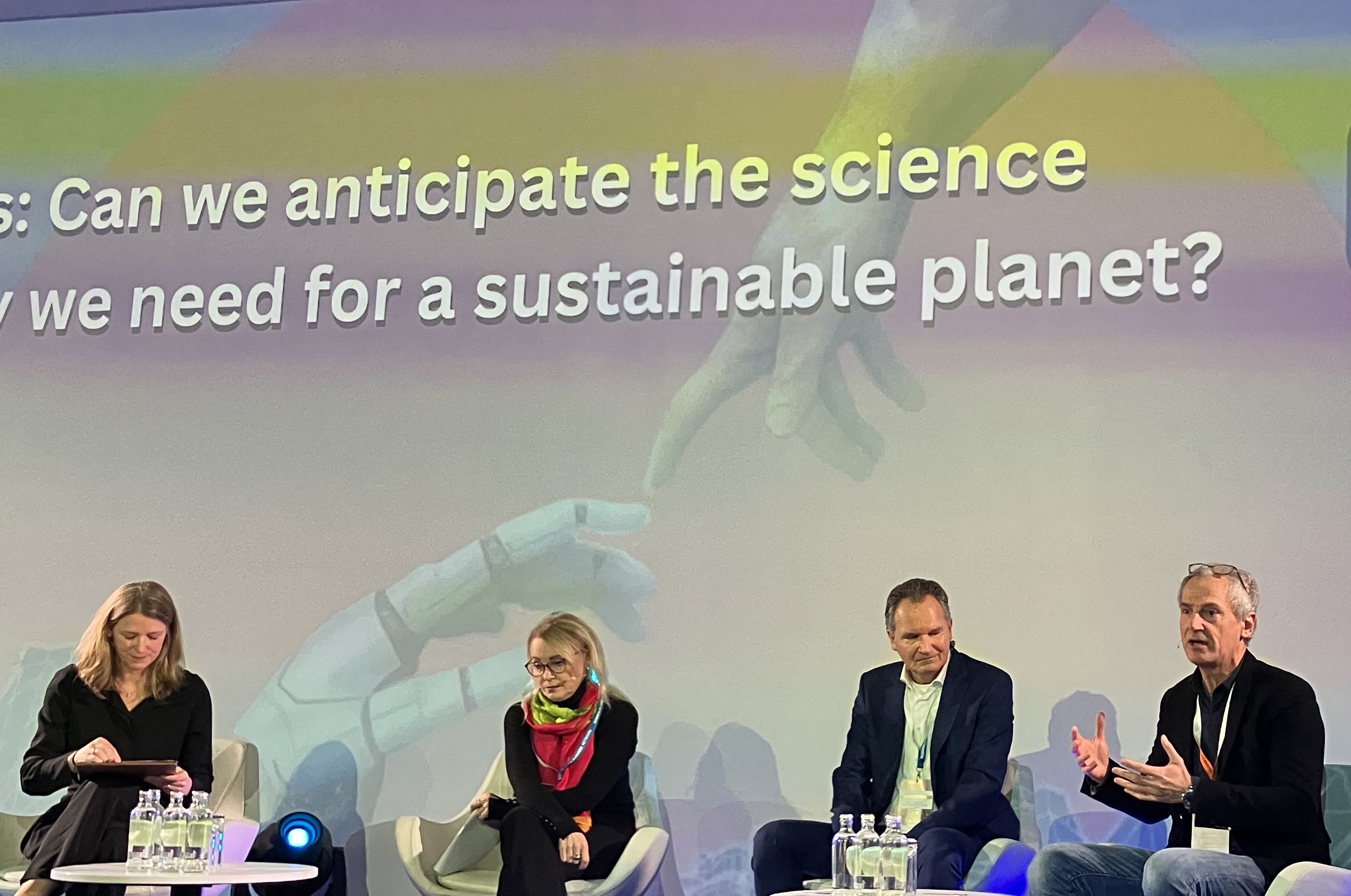
Director for Destination Earth at ECMWF participates in the opening panel of the event
In order to improve our understanding of climate change and extreme weather events, we need to upscale international cooperation and resources, joining forces to create systems to provide the best information possible for decision makers. This is in summary the message Peter Bauer conveyed to the audience during “Crystal balls: Can we anticipate the science and technology we need for a sustainable planet?” the Opening panel of the Science Business Annual Network Conference in Brussels and online on 7 February 2023.
The event was inaugurated by Sweden’s Minister for Climate and the Environment Romina Pourmokhtari, who explained the ambitious objectives of the Swedish Government and made three wishes for the European green tech industry: more research in policy innovation and behavioral change, new tech to increase resource efficiency, and nature-positive food production and bioeconomy.
During the panel, hosted by Science | Business Chief Executive Maryline Fiaschi, Peter Bauer defended the need for a groundbreaking platform such as Destination Earth.
“We do need research and science, the science journey towards climate change and driving our understanding about where change comes from and how things will be in a future is far from over, so we need to invest in the basic questions at the same time, as much as try to convert them into decisions and structural change”.
Robert-Jan Smits, President of the Executive Board at Eindhoven University recalled that we are currently exploiting a small portion of the possibilities of big data and the available technologies: “we have not even scratched the surface of all the possibilities we have to embed digital technology and digital services in production processes, in our economy, or our society”, he said.
Completing the panel, Sari Arho Haven, Senior Advisor at Business Finland, also praised the opportunities that digital technology offers to prevent and mitigate climate disasters and described how her teams have put the capabilities of digital technology into practice for risk evaluation activities within Business Finland.
As a conclusion Bauer said, “as a scientist I’m positive about the prospects for the future. In Europe, we have a chance that nobody else has; the fact that we manage to gather international collaboration, centralise excellence, funding and resources makes us lead by example; many other countries and continents aspire to this opportunity”.
Destination Earth also featured at the talk “Big data for sustainability: Will new approaches and analytics change the game”, where Per Oster, Director for Advanced Computing Facility at CSC – IT Center for Science, explained the Finnish Center’s contribution to developing ECMWF’s Climate Adaptation Digital Twin.
The Science | Business Annual Network Conference was organised under the theme “Sustainable horizons: Does our future depend on science?” and gathered leading EU policymakers, members of Academia and research and from the IT ecosystem. The recordings are available online.
European Commission Executive Vice-President and Commissioner for Competition Margrethe Vestager closed a seminar which provided a comprehensive overview of the current state of the European science and technology ecosystem and the perspectives for the future, with a focus on the progress of the EU’s Horizon Europe programme.
Science | Business is a leading European Network and publication platform aiming at bringing together industry, research and policy.
Destination Earth is a European Union funded initiative launched in 2022, with the aim to build a digital replica of the Earth system by 2030. The initiative will be jointly implemented by three entrusted entities: the European Centre for Medium-Range Weather Forecasts (ECMWF) responsible for the creation of the first two ‘digital twins’ and the ‘Digital Twin Engine’, the European Space Agency (ESA) responsible for building the ‘Core Service Platform’, and the European Organisation for the Exploitation of Meteorological Satellites (EUMETSAT), responsible for the creation of the ‘Data Lake’.
More information about Destination Earth on the EU Commission website
